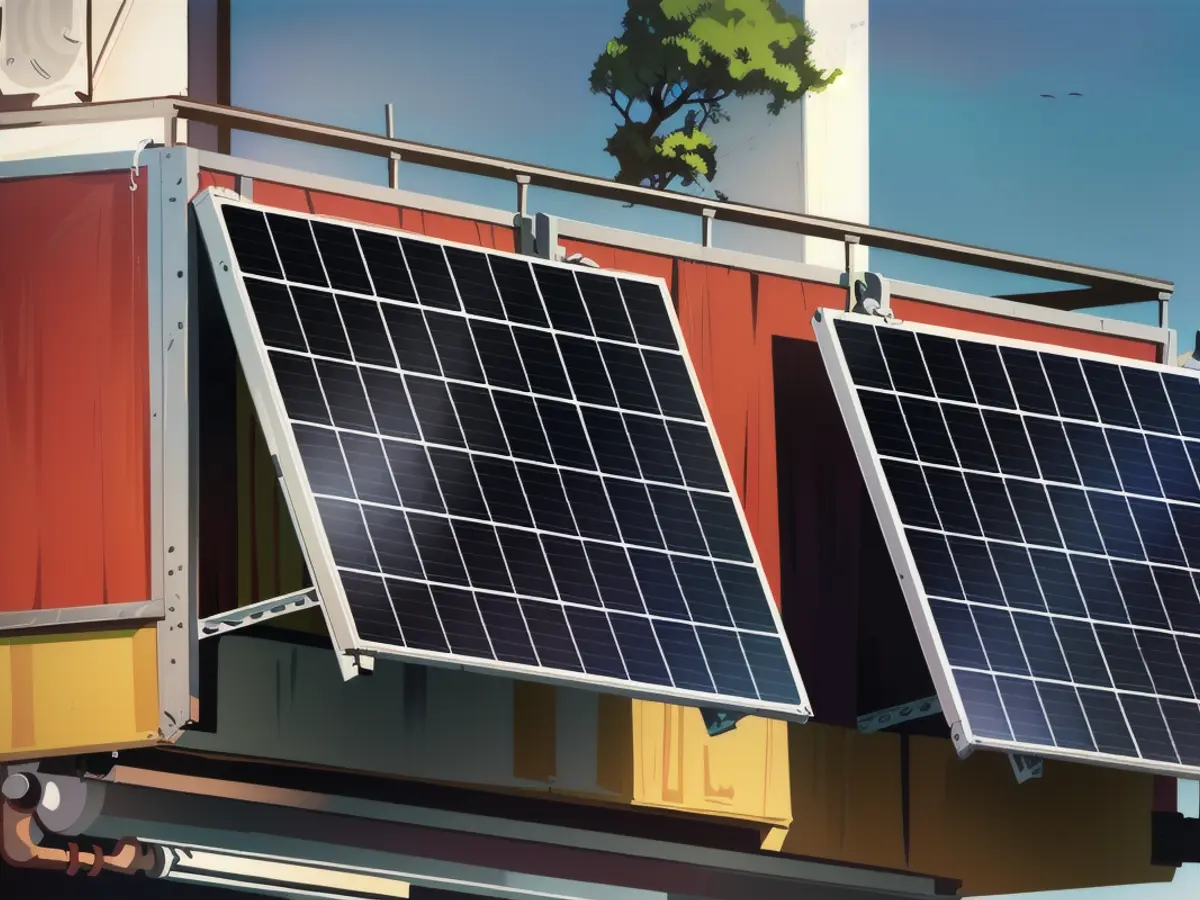Non-traditional power sources - Solar power plants on balconies are gaining popularity, providing energy to thousands of people.
The number of mini solar panels on balconies has increased drastically in the southwestern region recently. Marko Schieck, head of network relations at Netze BW, revealed that over 11,000 of these panels have been reported in their region this year. This echoes their prediction of 28,000 newly installed panels for the entire year. Presently, there are around 24,000 such solar units in the region.
The state of Baden-Württemberg's primary distribution network operator maintains that almost 62,250 of these mini solar panels are registered across the state. Thus, more than 19,500 have been installed just this year.
While all these new solar units have been registered, the actual number could be higher since network operators take a month to note them down. As of April 1st, registration in the market data register became mandatory. Earlier, notification to the network operator was necessary.
Netze BW has expanded their staff to handle this rise. They anticipate 40,000 additional mini solar systems next year. Key factors driving this trend include diminishing acquisition costs, climbing power output to 800 watts, and greater public support.
Increased interest in balcony power plants is evident in Stuttgart Netze as well. "The affordable price, high electricity tariffs, and incentives offered by the government are the main drivers of the growing popularity of balcony power plants," said the distribution network operator of the capital city, Stuttgart Netze. Approximately 1,970 of these installations exist in Stuttgart - 720 of which were installed this year.
Stuttgart Netze does not anticipate any issues with this influx: "Our network has been designed for increased loads, so the relatively low power capacity of balcony power plants does not pose a significant challenge."
Solar panels are typically installed on balconies, with the produced electricity converted into domestic current by an inverter. The current is then injected into the electric grid through an outlet in the apartment and used instantly. This serves to alleviate the load on appliances that operate continuously, such as a refrigerator, as less electricity is drawn from the grid.
Read also:
The surge in alternative energies is evident in Baden-Württemberg, with over 11,000 mini solar panels on balconies reported this year. This trend is expected to continue, with Netze BW anticipating 40,000 additional solar systems next year. Consumers in the southwest are turning to balcony power stations to generate their own electricity, alleviating load on appliances and reducing dependence on traditional energy sources. The government's incentives and the dropping cost of solar panels are contributing factors to this shift. Stuttgart, the capital city, has seen a notable increase as well, with approximately 1,970 solar panels installed on balconies, 720 of which were added this year.








